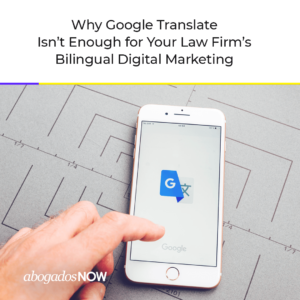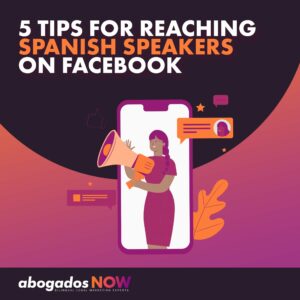Google Translate is an incredible tool. People searching for a cursory understanding of something in another language can copy/paste the text that is perplexing them, and get a computer-generated translation in a language they understand. It is an excellent tool for double-checking your work when you are learning a new language, finding word-to-word translations, or translating short, uncomplicated sentences.
It is not a useful tool for bilingual marketing.
It is tempting to take the website, blog, and social media copy you have already produced and plug it right into a Google Translate window. But what you will wind up with is a clinical, sometimes mistranslated, and incoherent mess that barely gets the gist of your nuanced idea across. Add the fact that Spanish dialects and cultural values can influence the way things are phrased, and you have a recipe for disaster when it comes to relying on machine translation only.
When you court Spanish-speaking clients, your goal should be to convince them that you understand them as buyers. Imagine getting into an accident or facing unfair treatment at work and seeking a personal champion to represent you, only to land on a site that says: “For you lawyer today call.” That is the kind of flawed verbiage you will be receiving when you plug and chug with Google Translate. It is difficult to understand, alienating, and overall ineffective.
It is worth the time and expense to hire a professional translator. Translators study for years, and have hours upon hours of practice. Start by doing some research on the demographics and preferred dialects in your area. Are you looking to sign more Mexican-American clients? Or is your office in the middle of a Puerto Rican neighborhood? This can matter because there are significant differences even between those two Latin American dialects. For example, “muerto” in Spanish means “dead,” but in the Puerto Rican dialect, it can be slang for “speed bump.” It will be difficult to write marketing copy about automobile accidents without a solid cultural understanding of how this single word works for different populations.
Remember, if you are looking to expand your business into the bilingual market, do so thoughtfully and adequately. Nothing is worse than a bad translation that immediately tells your prospective client that you are entirely out of touch.





